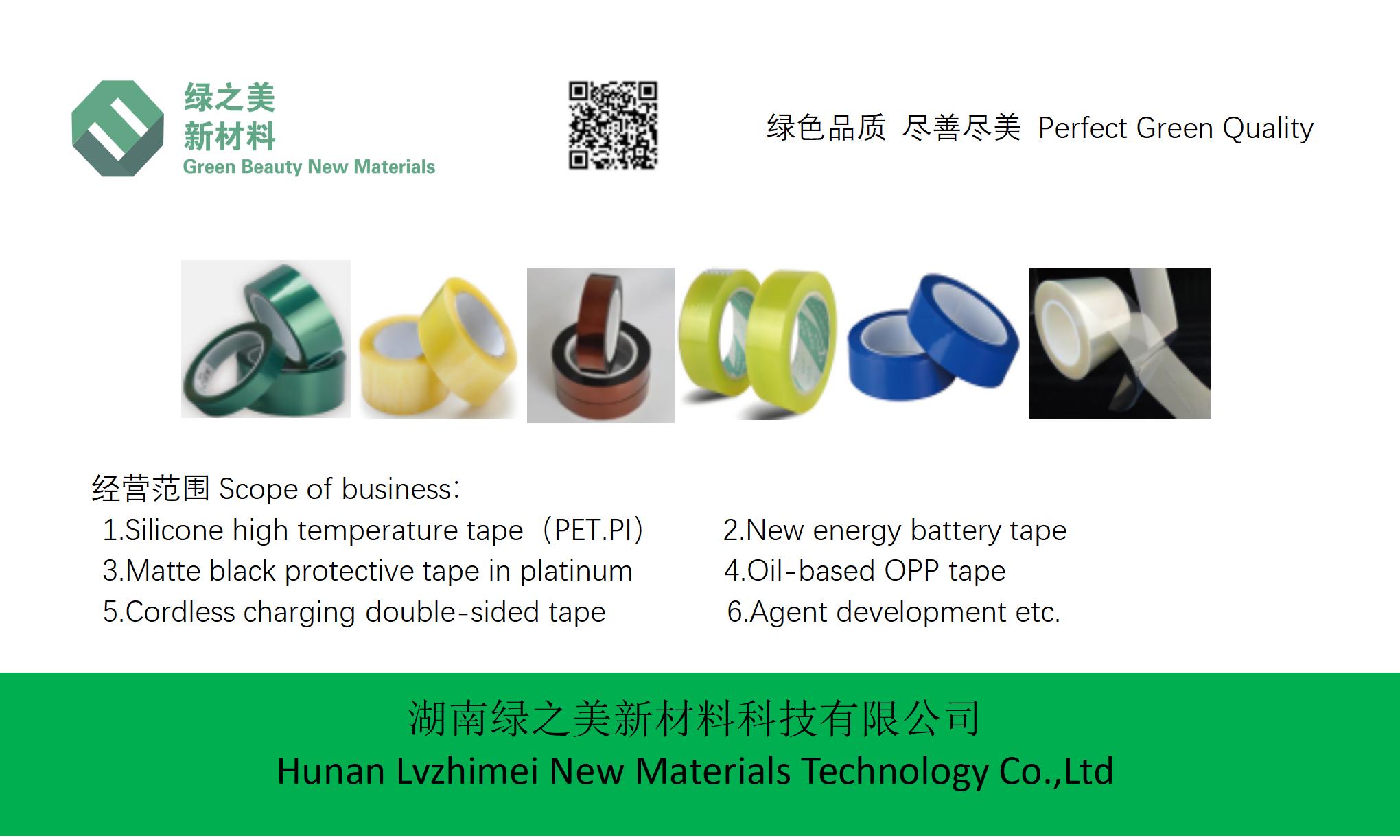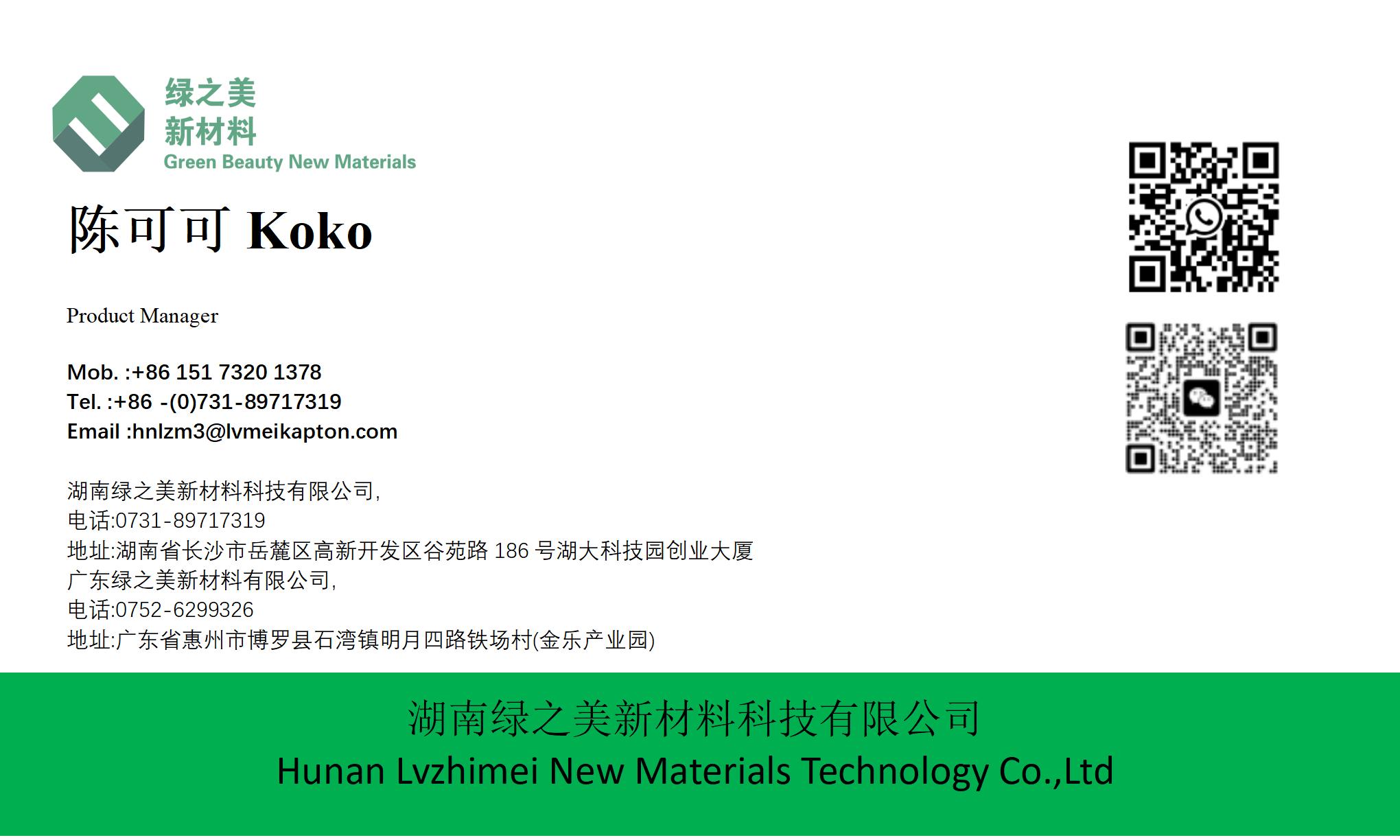hnlzm@lvmeikapton.com
+86 13787123465


Hunan Lvzhimei New Material Technology Co., Ltd.


NameDescriptionContent
Why Use LVMEIKAPTON Tape in Nuclear Applications? |https://www.lvmeikapton.com/
Source:
|
Author:Koko Chan
|
Published time: 2025-06-26
|
9 Views
|
Share:
In the intricate and demanding field of nuclear applications, the selection of materials is paramount due to the extreme conditions they must endure. LVMEIKAPTON tape, a high-performance polyimide (PI) material, has emerged as a preferred choice for various nuclear-related tasks. This article delves into the unique properties of LVMEIKAPTON tape, focusing on its high-temperature resistance and exceptional resistance to gamma radiation, making it an indispensable component in nuclear applications.
Why Use LVMEIKAPTON Tape in Nuclear Applications?
Introduction
In the intricate and demanding field of nuclear applications, the selection of materials is paramount due to the extreme conditions they must endure. LVMEIKAPTON tape, a high-performance polyimide (PI) material, has emerged as a preferred choice for various nuclear-related tasks. This article delves into the unique properties of LVMEIKAPTON tape, focusing on its high-temperature resistance and exceptional resistance to gamma radiation, making it an indispensable component in nuclear applications.
Understanding LVMEIKAPTON Tape
LVMEIKAPTON tape is a specialized polyimide film that exhibits remarkable thermal stability and radiation resistance. Polyimide materials are known for their exceptional mechanical strength, chemical resistance, and durability, qualities that are further enhanced in LVMEIKAPTON tape. The tape is designed to withstand temperatures up to 300°C, ensuring its functionality in high-heat environments typical in nuclear facilities. Additionally, its resistance to gamma radiation, capable of withstanding doses up to 100 kGy, makes it ideal for applications where radiation exposure is a significant concern.
Key Properties of LVMEIKAPTON Tape
1.
High-Temperature Resistance: LVMEIKAPTON tape's ability to maintain its integrity at temperatures exceeding 300°C is crucial in nuclear reactors and other high-temperature processes. This property ensures that the tape does not degrade or lose its functional characteristics under extreme thermal conditions.
2.
Gamma Radiation Resistance: One of the most significant advantages of LVMEIKAPTON tape is its resistance to gamma radiation. With the capability to withstand doses of up to 100 kGy, this tape remains stable and effective in environments with high radiation levels, such as those found in nuclear power plants and radiation research facilities.
3.
Chemical Resistance: LVMEIKAPTON tape demonstrates excellent resistance to a wide range of chemicals, including acids, bases, and solvents. This chemical stability is essential in nuclear applications where the tape may be exposed to various reactive substances.
4.
Mechanical Strength: The tape's high tensile strength and tear resistance make it suitable for use in applications that require durability and reliability, even under mechanical stress.
5.
Dielectric Properties: LVMEIKAPTON tape possesses excellent electrical insulation properties, making it suitable for use in electrical and electronic components within nuclear facilities.
Applications of LVMEIKAPTON Tape in Nuclear Industries
LVMEIKAPTON tape's unique properties make it indispensable in various nuclear applications. The following sections highlight some of the key uses of this tape in the nuclear industry.
Radiation Protection
In nuclear facilities, protection against radiation is of utmost importance. LVMEIKAPTON tape's resistance to gamma radiation makes it an excellent material for creating protective barriers and shielding. It is commonly used in the construction of radiation shielding for personnel, equipment, and sensitive instruments. The tape's ability to withstand high doses of radiation ensures that it remains effective over extended periods, providing consistent protection.
Thermal Insulation
Nuclear reactors and other high-temperature processes generate intense heat that requires effective insulation. LVMEIKAPTON tape's high-temperature resistance makes it an ideal choice for thermal insulation applications. It is used to insulate cables, pipes, and other components within nuclear facilities, ensuring that they operate within safe temperature ranges and preventing heat-related damage.
Electrical Insulation
Electrical systems within nuclear plants must be highly reliable and resistant to the harsh environmental conditions present. LVMEIKAPTON tape's excellent dielectric properties make it suitable for use as electrical insulation in cables, connectors, and other electrical components. Its ability to withstand high temperatures and radiation ensures the continued functionality and safety of electrical systems.
Cable Wrapping
LVMEIKAPTON tape is widely used for cable wrapping in nuclear applications. Its mechanical strength and thermal stability provide protection against physical damage and heat, ensuring the integrity and longevity of cables. Additionally, the tape's resistance to radiation helps maintain cable performance in high-radiation environments.
Component Protection
In nuclear facilities, various components and equipment are exposed to extreme conditions, including radiation and heat. LVMEIKAPTON tape is used to protect these components from degradation and failure. It is applied as a protective layer on surfaces, providing a barrier against radiation, heat, and chemicals, thereby extending the lifespan and reliability of critical equipment.
Advantages of Using LVMEIKAPTON Tape in Nuclear Applications
The utilization of LVMEIKAPTON tape in nuclear applications offers several advantages that contribute to the safety, efficiency, and reliability of nuclear facilities.
1.
Enhanced Safety: The tape's radiation and thermal resistance properties enhance the safety of personnel and equipment within nuclear facilities. By providing effective shielding and insulation, it reduces the risk of radiation exposure and heat-related incidents.
2.
Longevity and Durability: LVMEIKAPTON tape's high mechanical strength and resistance to degradation ensure that it remains effective over extended periods. This durability reduces the need for frequent replacements, saving time and resources.
3.
Reliability: The consistent performance of LVMEIKAPTON tape under extreme conditions ensures the reliable operation of nuclear systems. Its ability to maintain its properties in high-temperature and high-radiation environments is crucial for the uninterrupted functioning of critical components.
4.
Cost-Effective: While LVMEIKAPTON tape may have a higher initial cost compared to some other materials, its longevity and durability make it a cost-effective solution in the long run. Reduced maintenance and replacement costs contribute to overall cost savings.
5.
Versatility: LVMEIKAPTON tape's versatile properties make it suitable for a wide range of applications within the nuclear industry. Its adaptability to different uses enhances its value as a multi-purpose material.
Comparison with Other Materials
When considering materials for nuclear applications, it is essential to compare LVMEIKAPTON tape with other commonly used options. The following table compares LVMEIKAPTON tape with some alternative materials based on key properties:
Property | LVMEIKAPTON Tape | PTFE Tape | Polyester Tape | Kapton Tape |
Temperature Resistance | Up to 300°C | Up to 260°C | Up to 150°C | Up to 400°C |
Radiation Resistance | 100 kGy | Low | Low | 50 kGy |
Chemical Resistance | Excellent | Excellent | Good | Excellent |
Mechanical Strength | High | Moderate | Moderate | High |
Dielectric Properties | Excellent | Good | Good | Excellent |
As shown in the table, LVMEIKAPTON tape offers a balanced combination of high-temperature resistance, radiation resistance, and mechanical strength, making it a superior choice for nuclear applications compared to other materials.
Case Studies
To further illustrate the effectiveness of LVMEIKAPTON tape in nuclear applications, the following case studies provide real-world examples of its successful implementation.
Case Study 1: Radiation Shielding in a Nuclear Power Plant
A major nuclear power plant faced challenges with radiation exposure to critical equipment. By incorporating LVMEIKAPTON tape into the shielding design, the plant was able to significantly reduce radiation levels, ensuring the safety and longevity of the equipment. The tape's ability to withstand high doses of gamma radiation made it the ideal solution for this application.
Case Study 2: Thermal Insulation in a Research Reactor
In a research reactor, maintaining optimal temperatures is crucial for safe operation. LVMEIKAPTON tape was used for thermal insulation of key components, ensuring that they remained within safe operating temperatures even under extreme conditions. The tape's high-temperature resistance and durability contributed to the reliable performance of the reactor.
Conclusion
LVMEIKAPTON tape's exceptional properties, including high-temperature resistance and gamma radiation resistance, make it a vital material in nuclear applications. Its versatility, durability, and reliability ensure that it meets the stringent requirements of the nuclear industry, enhancing safety and efficiency. As nuclear technology continues to advance, the importance of high-performance materials like LVMEIKAPTON tape will only increase. By understanding and utilizing the unique advantages of LVMEIKAPTON tape, nuclear facilities can achieve higher levels of performance and safety, contributing to the overall success and sustainability of the nuclear industry.



Hunan Lvzhimei New Material Technology Co., Ltd.
Quick Links
Product Categories
© 2024 Hunan Lvzhimei New Material Technology Co., Ltd.All Rights Reserved. Designed by Erge
0731 - 89717319
hnlzm@lvmeikapton.com
+86 13787123465
Room 502, Chuangye Building, No186, Guyuan Road, High-Tech District, Changsha, Hunan, China
CONTACT



